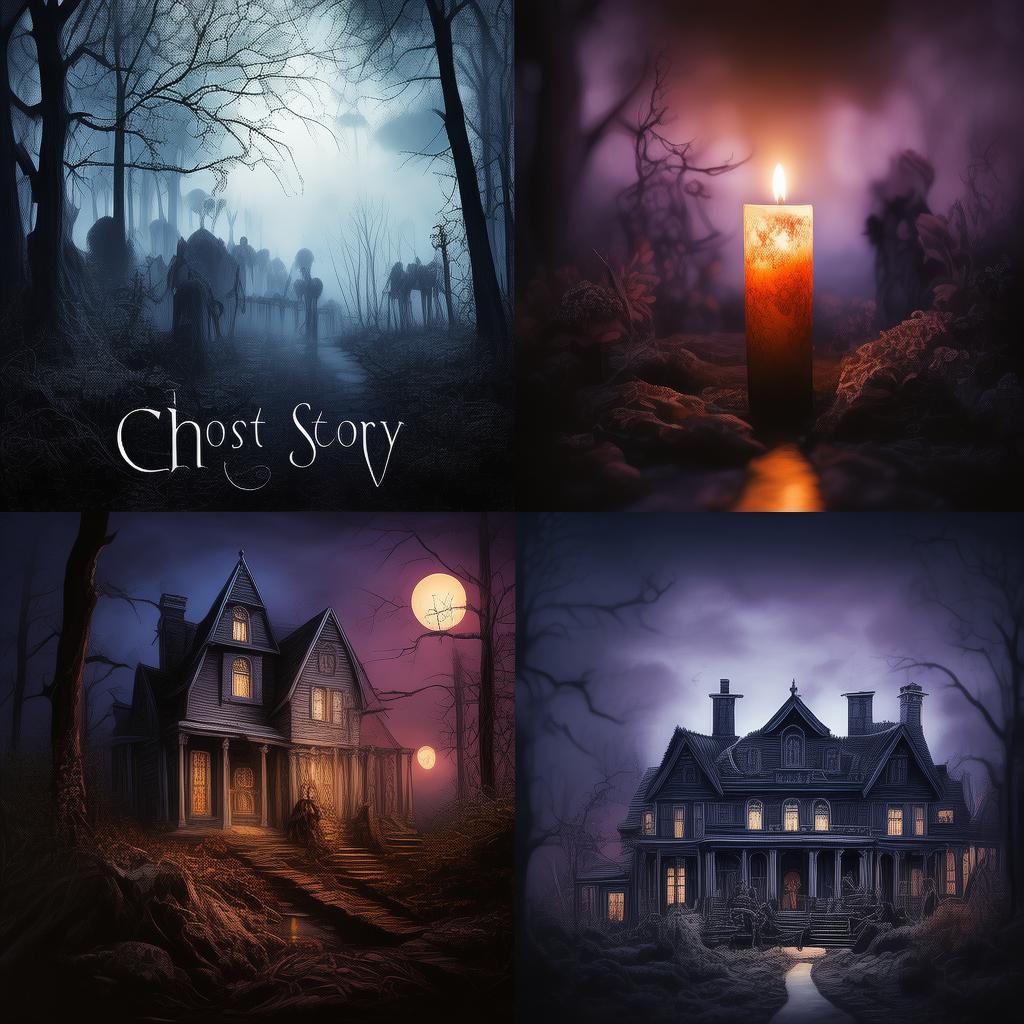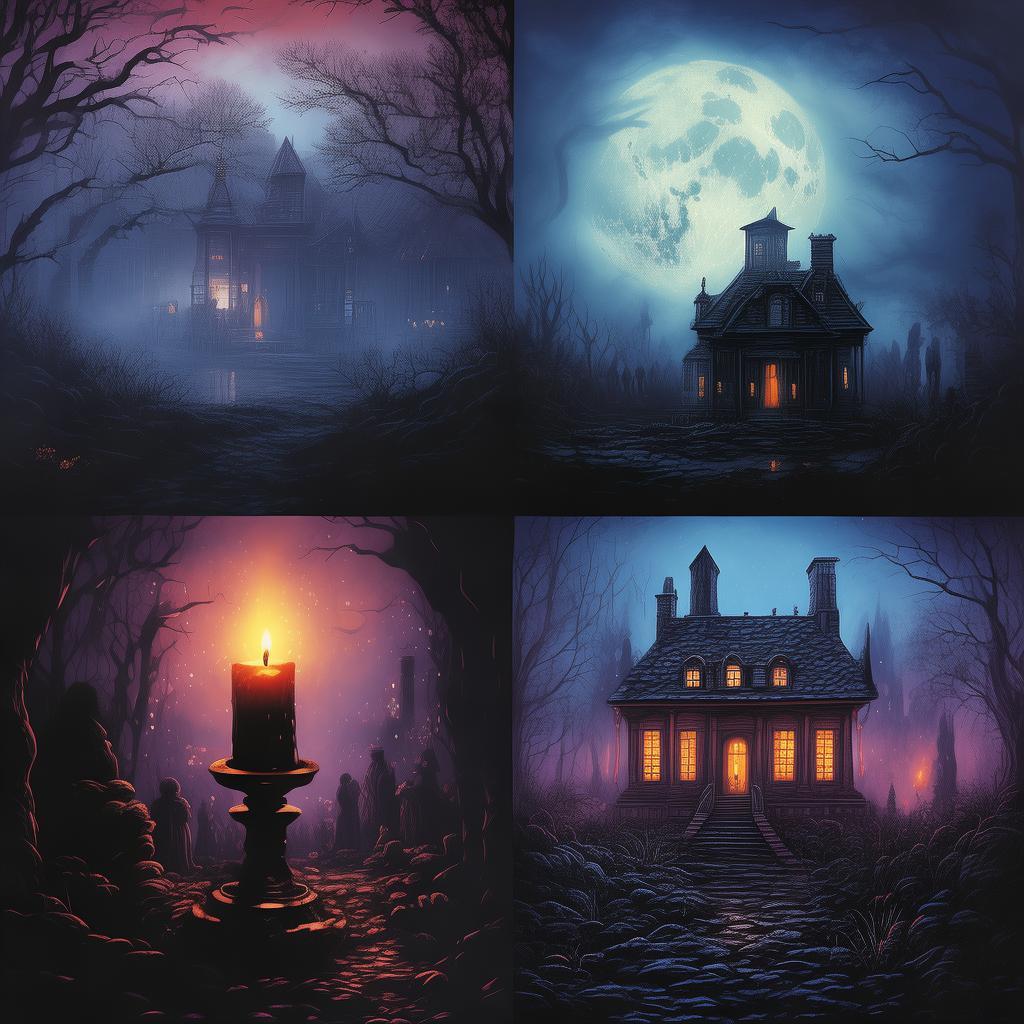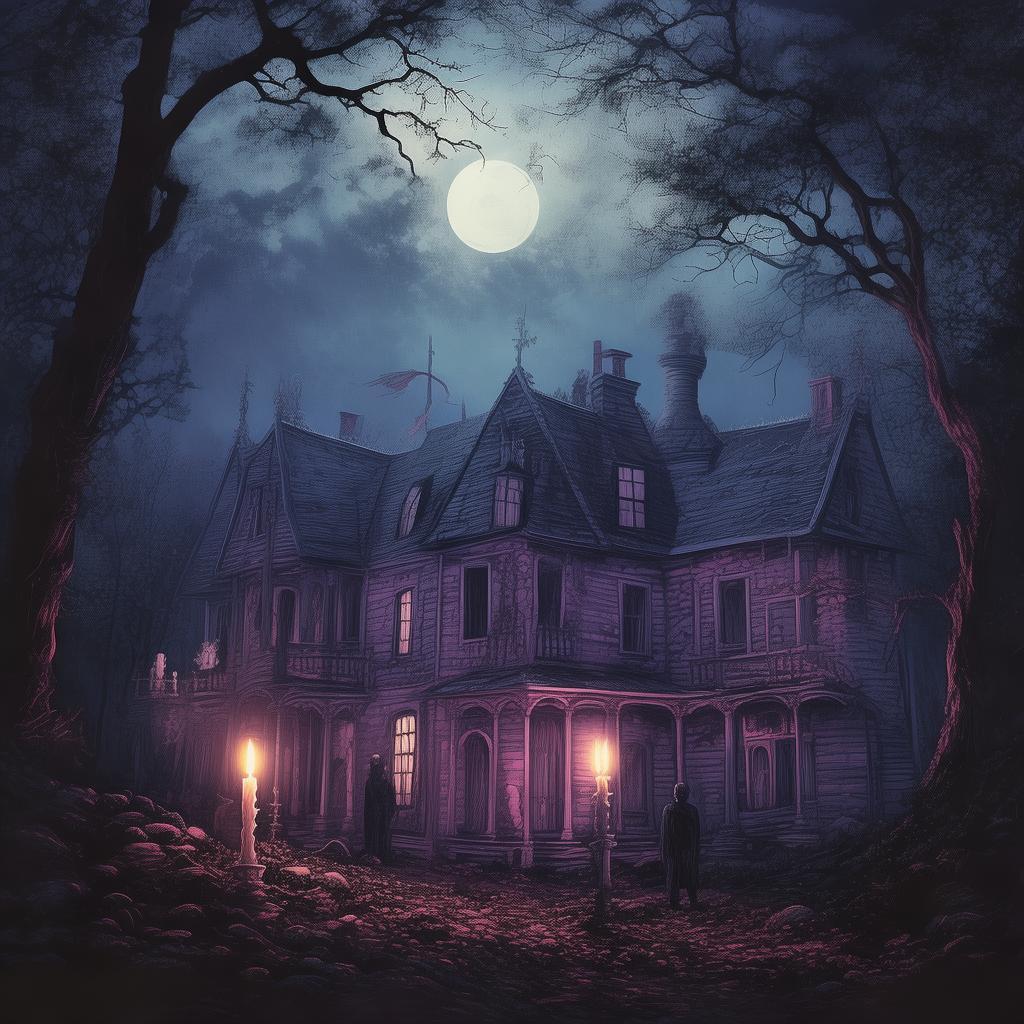The Haunting of the Forgotten Cinema
In the heart of a forgotten town, nestled between a decrepit amusement park and a desolate train track, stood the old Cinema Paradiso. It was a relic of a bygone era, its neon sign long since flickered out, and its marquee peeling away in the wind. The town had changed, but the cinema remained, a silent sentinel to the stories of the past.
The filmmakers, a trio of young dreamers, had heard whispers of the cinema's haunting. They were Alex, a charismatic director with a penchant for the supernatural; Lily, a meticulous scriptwriter with a knack for uncovering secrets; and Max, a tech-savvy producer with a knack for pushing the boundaries of reality. They had a vision: to create a documentary that would bring the cinema back to life, not through its screens, but through the stories of those who had lived and died within its walls.
Their first night was spent setting up cameras and microphones, the only sounds coming from the whirring of equipment and the distant howl of a dog. As the night deepened, the air grew colder, and the hairs on their necks stood on end. Lily felt a chill run down her spine as she walked through the empty auditorium, the scent of old popcorn mingling with the faint smell of something else, something more sinister.
"Did you hear that?" Alex asked, his voice barely above a whisper.
Max, who was checking the sound levels, nodded. "I think it was just the wind."

Lily, however, was not so sure. She had read the legends of the cinema, of a silent film projectionist who had vanished without a trace, and of a young actress who had died on the set of a film that was never completed. The town's elders spoke of the cinema as a place where time itself seemed to stand still, where the living and the dead shared a strange, unspoken bond.
The next morning, as they began to interview the townsfolk, they discovered that the cinema's haunting was not just a legend. Old Mrs. Thompson, the town's historian, shared a story of a young couple who had eloped to the cinema to watch their first film together. They had never returned, and it was said that their spirits remained trapped within the cinema, forever waiting for their first date.
As the filmmakers delved deeper into their investigation, they began to experience strange occurrences. Alex would find himself standing in the projection room, the projector whirring to life as if by itself. Lily would hear whispers in the empty auditorium, the voices of the lost actors and projectionist calling out to her. Max would find his camera rolling, capturing images of faces that no one else could see.
The filmmakers decided to confront the spirits directly, hoping to uncover the truth behind the cinema's haunting. They set up a séance, a ritual designed to communicate with the dead. As the candles flickered and the incense smoked, the room grew heavy with anticipation. Suddenly, the lights flickered, and a cold breeze swept through the room. A voice, faint and haunting, echoed through the space.
"We are here," the voice said. "We are waiting."
The filmmakers were startled, but they pressed on. They asked the spirits to reveal their story, to explain why they remained trapped in the cinema. The voices grew louder, more insistent, and the filmmakers realized that they were not just ghosts; they were trapped in a cycle of waiting, a cycle that could only be broken by those who dared to confront it.
The climax of their documentary came when the filmmakers decided to make a sacrifice. They would burn the negatives of the film that had never been completed, a film that had been cursed, a film that had claimed the lives of the young couple. As the flames consumed the negatives, the spirits seemed to sigh in relief, and the cinema began to change.
The filmmakers left the cinema, their documentary complete. They had not only captured the story of the cinema's haunting but had also freed the spirits that had lingered within its walls. The town of Cinema Paradiso began to heal, and the cinema, once a silent sentinel, now stood as a testament to the power of forgiveness and the enduring legacy of love.
The Haunting of the Forgotten Cinema was not just a documentary; it was a story of redemption, a story that would resonate with anyone who had ever felt lost or forgotten. It was a story that would live on, not just in the memories of the filmmakers, but in the hearts of those who dared to believe in the supernatural.
✨ Original Statement ✨
All articles published on this website (including but not limited to text, images, videos, and other content) are original or authorized for reposting and are protected by relevant laws. Without the explicit written permission of this website, no individual or organization may copy, modify, repost, or use the content for commercial purposes.
If you need to quote or cooperate, please contact this site for authorization. We reserve the right to pursue legal responsibility for any unauthorized use.
Hereby declared.









